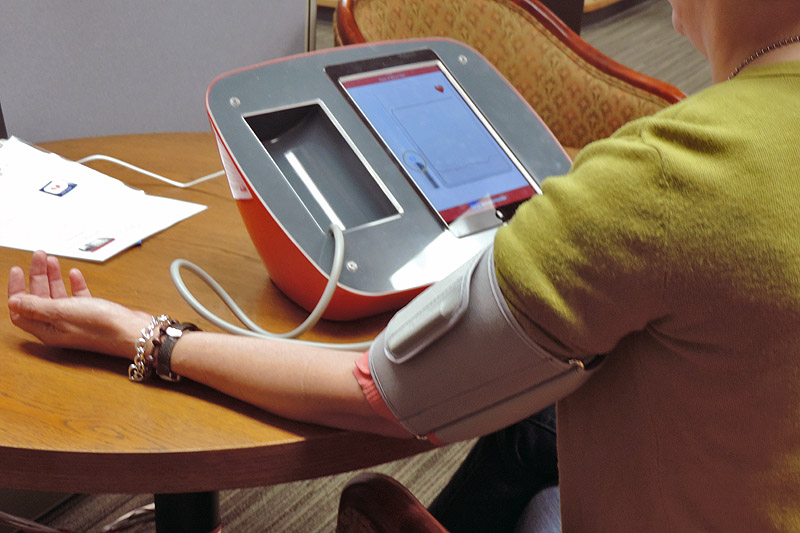American Heart Association Rapid Access Journal Report
 Dallas, TX – Women who develop prehypertension late in pregnancy may be more likely to give birth to underweight or stillborn babies than women whose blood pressure remains normal, according to new research in the American Heart Association’s journal Hypertension.
Dallas, TX – Women who develop prehypertension late in pregnancy may be more likely to give birth to underweight or stillborn babies than women whose blood pressure remains normal, according to new research in the American Heart Association’s journal Hypertension.
Prehypertension is a systolic pressure (the top number) between 120-129 millimeters of mercury (mm Hg) or a diastolic pressure (the bottom number) between 80-89 mm Hg, or both.

However, this may be the largest study to examine blood pressure changes to prehypertensive levels in women whose blood pressure was normal at the beginning of their pregnancy, researchers said.
“Working as a clinical doctor in obstetrics, I often meet women with ‘borderline high blood pressure,’ and I wanted to find out if they had increased risks of adverse fetal outcomes,” said Anna-Karin Wikström, M.D., Ph.D., study lead author and associate professor of obstetrics at Uppsala University in Sweden.
For this study, researchers evaluated diastolic pressure, which measures the pressure in the arteries between heartbeats. They defined low birth weight as born small for gestational age (SGA) – with a birthweight among the 2.5 percent lightest in a specific gestational week.
Compared to women whose blood pressure remained normal, researchers found:
- Women who had prehypertension in late pregnancy (36 weeks) were 69 percent more likely to give birth to a baby that was underweight and 70 percent more likely to have a stillbirth.
- Those who experienced a 15 point or greater increase in diastolic blood pressure and developed prehypertension were more than twice as likely to deliver a small baby.
- Among all women studied (with or without prehypertension), the likelihood of having a small baby increased by 2 percent for each single point rise in diastolic blood pressure.
Researchers analyzed medical records from 2008 to 2014 of more than 150,000 women in the Stockholm-Gotland Obstetric Database. Records included blood pressure readings before 20 weeks and after 34 weeks of pregnancy. Only women who carried their babies for 37 weeks or longer, and whose blood pressure never surpassed 140/90 during pregnancy, and were carrying only a single baby were included in the study.
In all, about 11 percent of the women developed prehypertension. Among all deliveries, there were 2,416 small-for-gestational-age infants and 194 stillbirths.
After adjustments, the connection remained significant. However, researchers emphasized that their study showed only an association, not a cause-and-effect relationship, between blood pressure and fetal outcomes.
Co-authors are Johanna Gunnarsdottir, M.D; Maria Nelander, M.D.; Marija Simic, M.D., Ph.D.; Olof Stephansson, M.D., Ph.D.; and Sven Cnattingius, M.D., Ph.D. Author disclosures are on the manuscript.
Additional Resources
- High Blood Pressure and Women
- Pregnancy and Heart Disease
- Follow AHA/ASA news on Twitter @HeartNews.
- For the updates and new science from the Hypertension journal follow @HyperAHA.



